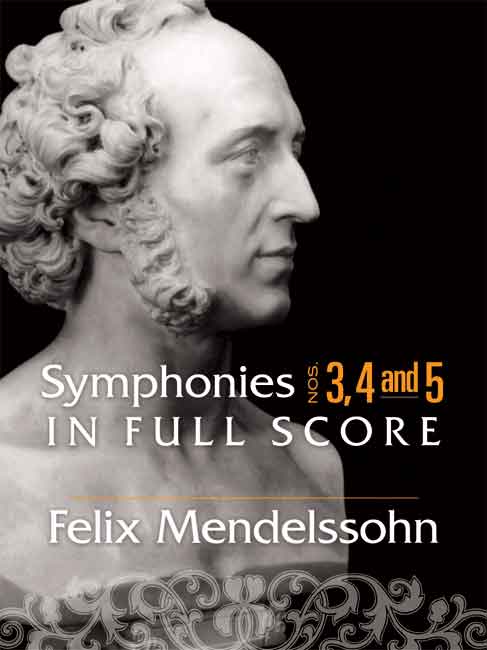
Dover Publications - 486
Mendelssohn Symphonies Nos. 3, 4 and 5 in Full Score
Composer: Felix Mendelssohn
Publisher: Dover Publications
Format: Full Score
Binding: Paperback
Dimensions: 9 in x 12 in
Pages: 240
Mendelssohn Symphonies Nos. 3, 4 and 5 in Full Score
Juilliard Store
144 West 66th Street
New York NY 10023
United States
Choose options
Mendelssohn Symphonies Nos. 3, 4 and 5 in Full Score
Juilliard Store
144 West 66th Street
New York NY 10023
United States
Mendelssohn Symphonies Nos. 3, 4 and 5 in Full Score
Juilliard Store
144 West 66th Street
New York NY 10023
United States
Known as the "Scottish" Symphony, Symphony No. 3 in A Minor, Op. 56, was inspired by a trip to the highlands and dedicated to Queen Victoria. Its lively second movement is derived from Scottish folk music. Also inspired by the composer's travels, Symphony No. 4 in A Major, Op. 90, is commonly known as the "Italian" Symphony and evokes the sunny peninsula's color and atmosphere. Symphony No. 5 in D Major, Op. 107, called the "Reformation" Symphony, was written in 1832 to commemorate the 300th anniversary of Martin Luther's Augsburg Confession, the momentous document that formed the cornerstone of the Protestant Reformation. All three works appear here in definitive Breitkopf and Härtel editions.
